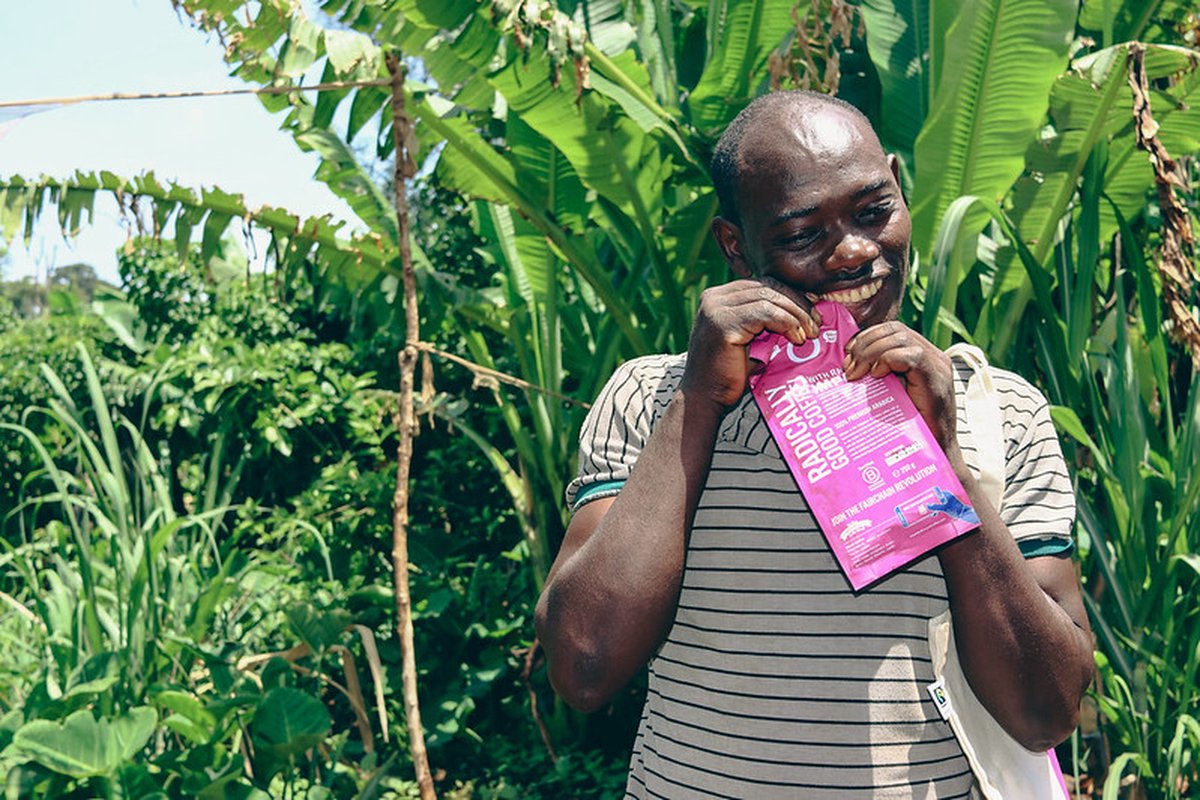Your Cart is Empty
🚚 ALL ORDERS PLACED OVER CHRISTMAS AND NEW YEAR WILL BE SHIPPED ON MONDAY 5TH JANUARY 🚚
Nestled in the heart of Africa, Ethiopia proudly claims the title of the birthplace of coffee. As we approach the 2023 coffee harvest season, Ethiopia stands at the forefront of this rich tradition. In 2022, this captivating nation reasserted its dominance, accounting for an astounding 3% of the world's total coffee bean supply, equating to roughly four million bags of coffee beans. Let's delve into the culture and significance of coffee harvesting in Ethiopia.
Traditions and Techniques from Past to Present
The land where coffee was born, Ethiopia, continues to honour its age-old traditions in coffee cultivation. From the highlands to the lowlands, the art of Ethiopian coffee harvesting has deep roots that date back centuries. Today, as you savour a cup of Ethiopian coffee, take a journey with us through time and explore the traditions and techniques that give this coffee its rich, unique character.
Traditions of Ethiopian Coffee Harvest
In Ethiopia, coffee is more than just a beverage; it's a cultural cornerstone, often shared among family and friends. The coffee ceremony, a significant social event, is a testament to the country's heritage. The tradition includes roasting green coffee beans over an open flame, grinding them with a mortar and pestle, and brewing the coffee in a unique pot called a "jebena."
The coffee ceremony is an integral part of Ethiopian hospitality, emphasising the importance of community, relationships, and shared moments over a cup of coffee.
Harvesting Methods
Centuries ago, coffee harvesting in Ethiopia was a labour-intensive process. Coffee cherries were selectively handpicked, with families and communities coming together to work the fields. The cherries were then sun-dried to remove moisture.
While some parts of Ethiopia still use traditional methods, modern techniques have made their way into the Ethiopian coffee industry. The use of machinery, like pulping machines, helps streamline the process. However, it's important to note that small-scale farmers still rely on traditional handpicking due to limited resources.
Cultural Significance
Ethiopian coffee farming goes beyond economics; it plays a pivotal role in the social fabric. Coffee remains an important source of income for many Ethiopian families, and its cultivation is often passed down through generations. The coffee industry is a source of pride for the country and contributes significantly to its economy.
Unique Varietals
Ethiopia is renowned for its diverse coffee varietals. Each region in the country offers distinct flavours, from the fruity and floral notes of Yirgacheffe to the bold, earthy tones of Sidamo. These unique flavour profiles result from the combination of specific varietals, terroir, and the traditional natural processing method.
Future Challenges and Opportunities
Ethiopian coffee farming faces its share of challenges, including climate change and the need for sustainable practises. Organisations like Moyee are actively working with local farmers to promote ethical and sustainable coffee production.
The art of Ethiopian coffee harvesting combines time-honoured traditions with modern techniques. As you enjoy a cup of Ethiopian coffee, remember the centuries of culture and craftsmanship that go into every sip. By choosing Ethiopian coffee, you're supporting both a rich heritage and a sustainable future for the country and its farmers.
The art of Ethiopian coffee harvesting, steeped in centuries of culture and craftsmanship, is a reflection of our Moyee philosophy. When you choose Ethiopian coffee, you're embracing more than just a delightful brew; you're supporting a rich heritage and a sustainable future.
Moyee's FairChain Coffee isn't just about a beverage; it's a revolution in itself. Our coffee is grown on wild, forest-shaded coffee plants, meticulously handpicked by the farmers. It's about bringing value back to the source, ensuring that those who truly contribute to the process are the ones who benefit.
By roasting our coffee in the country of origin, we break the chains of the traditional coffee trade, eliminating middlemen and creating a direct, ultra-short chain. This empowers local communities, enhances livelihoods, and fosters a future where everyone wins.
As we venture deeper into this coffee journey, it's not just about storytelling; it's about storey proving. We're collaborating with institutions like Jimma University in Ethiopia, working closely with local farmers to better understand our interventions and their impacts. Our goal is to make every sip of Moyee coffee not just enjoyable but also impactful.
Empowering Coffee Farmers at Moyee
When the harvest season unfolds, it's not just about the beans; it's about the remarkable individuals who cultivate them. Let's shine a spotlight on our unsung heroes — the extraordinary farmers at Moyee, who tirelessly contribute to crafting your perfect cup, season after season.
At Moyee, we champion a daily battle cry: 'compete on quality, not poverty.' Our commitment to quality extends beyond the cup; it's about ensuring that every hand involved in the process reaps the benefits. In our pursuit of fairness, we initially implemented a 20% premium for our first 100 smallholders. However, a stark realization hit us — this premium alone was insufficient to guarantee our farmers a decent income.
With humility, we set aside our shining armor and embraced a new identity — 'the world's least unfair coffee company.' This shift prompted a comprehensive reevaluation of our strategies. Collaborating closely with the FairChain Foundation, we birthed the FairChain Farming program — a visionary initiative designed not just to improve coffee quality but to usher in a living income for our farmers.
Beyond the 20% premium, we introduced a living income differential — an investment per kilo of coffee — aimed at propelling the FairChain Farming Program. The core principle: as farmer income from the program increased, these investments could decrease, creating a sustainable cycle of prosperity.
Dedicatedly, we poured substantial resources into this program — precisely 1,439,523 euros until the end of 2022. These funds fueled diverse avenues, from yield and quality enhancement training to digitization, providing microcredits, and rejuvenating coffee plants. The impact is tangible: 539 farmers have already discovered the path to a living income. Inspired by this success, the FairChain Foundation is scaling up the program, extending its reach to 12,000 farmers in Ethiopia and 7,200 in Kenya.
So, remember, with every cup of Moyee coffee, you're not only tasting the richness of Ethiopian tradition but also contributing to a more sustainable future, one coffee bean at a time. Cheers to heritage, sustainability, and a taste that's truly remarkable.
Brewing exceptional coffee at home is both an art and a science. Whether you're new to home brewing or an experienced coffee lover, having the right beans, equipment, and techniques will elevate your daily cup.
The coffee industry has long been marred by economic disparities, with a significant portion of profits accruing to consuming countries, leaving producers with minimal returns. Moyee Coffee seeks to address this imbalance through its commitment to ethical sourcing and the FairChain model, ensuring that value addition benefits coffee-producing nations.
Exploring new coffee recipes can elevate your home brewing experience, offering a variety of flavors and styles to enjoy. Here's a guide to some must-try recipes, a detailed method for crafting the perfect latte, and insights into the differences between iced coffee and cold brew.



